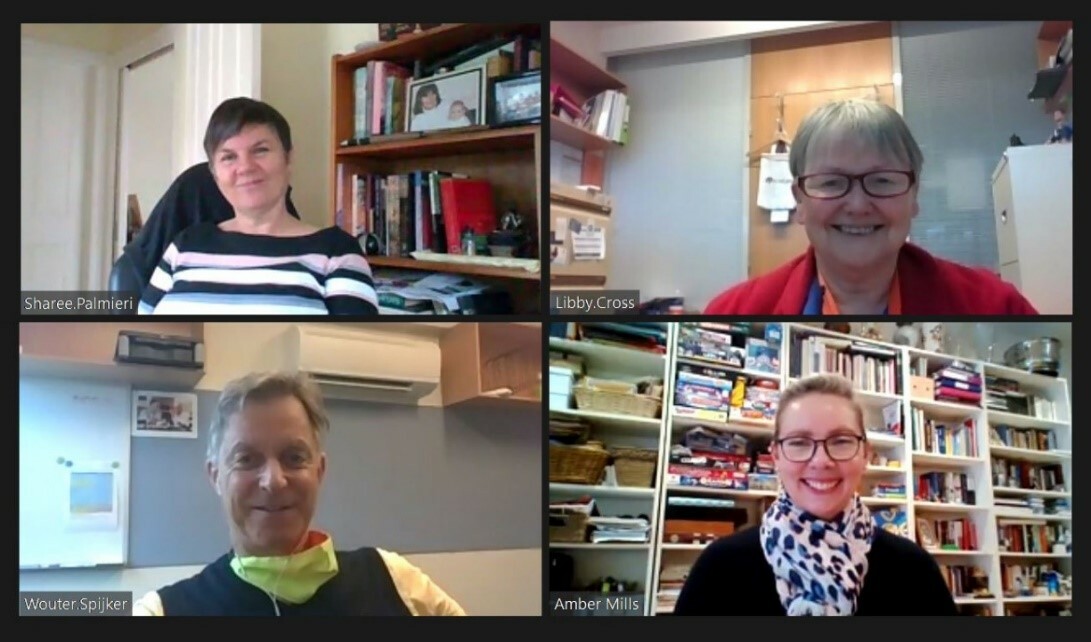Supporting older people without access to aged care services
Our Critical Interim Support (CIS) program aims to assist older people in Melbourne who have limited or no supports and who experience deep socioeconomic disadvantage.
We know that older people are falling through service gaps and experiencing a significant deterioration in their health and wellbeing. This is either because they are unable to engage in the Federal Government’s My Aged Care assessment process, or because they are subject to long wait times for a Home Care Package and unable to arrange essential support services in the meantime. Such support services include nursing care, personal care, domestic help, allied health and primary health.
During time without supports, people’s circumstances are likely to worsen, leading to a need for greater care in the medium and long term. With a deterioration in their living environment and physical and mental health, there is a heightened risk of homelessness, premature placement in residential facilities, and even premature death.
The CIS program is an innovative two-year pilot that commenced in September 2020. Philanthropically funded, the pilot runs in the south-eastern and north-western suburbs of Melbourne and works in an assertive outreach capacity with older people in vulnerable situations.
We provide intensive case management to address initial crises, guide participants through the My Aged Care assessment process, and link them with essential ongoing services. People only exit the program when a Home Care Package or suitable supports are in place.
The support provided by interim case management is more than systems navigation; it involves building trusting relationships and prioritising access to multiple support services.
In its first year of operation, between 1 September 2020 and 31 August 2021, 61 older people were supported by the program, demonstrating a need in the community.
Our Critical Interim Support (CIS) program perspectives from our people.
An interview with two of our BSL Case Managers provides insight on their perspectives of the CIS program.
How would you describe the impact of the work of the CIS program?
- 'The feedback from those using our services and referrers has been very appreciative. Referring agencies have concerns about how people will manage while on waitlists for home care package supports. We can reassure everyone they are not on their own while they wait for more permanent and ongoing care to arrive. We see that aged care pathways are complicated and confusing for many people.'
- 'Sometimes the work we undertake helps to create conditions so that services can be delivered. For example, working with people to address hoarding issues which have prevented other agencies from coming into the home. It takes time to build trust and rapport to do this type of work.'
Can you describe some of the more challenging work you have undertaken with people on the CIS program?
- 'An instance where I had a client return home from hospital only to find they had a suspension in their income support payments. During their stay in hospital, their dementia had progressed significantly and unexpectedly, and they needed support to be re-assessed for a different type of payment. In addition, the client required assistance booking and attending appointments with medical staff to organise supporting statements about their medical diagnoses – this took countless hours of coordination and visits to three different GPs. I’m thrilled to say we got the desired outcome in the end.'
- 'Encountering some of the loneliness that I have witnessed through this work. Sometimes even people who live with others feel very much alone. It’s so important to ensure older Australians still feel connected and supported.'
What are the most rewarding aspects of this work?
- 'It is a privilege to be let into someone’s life, their memories and their struggles, and to be able to provide assistance. For example, it took multiple visits for me to gain the trust of a client, who now waits outside their home to greet me when I arrive.'
- 'We have time to build trust and put in place ongoing and reliable supports for the client, and we feel like we make a real difference in the lives of the people we work with.'
You can learn more about our aged care services here.
